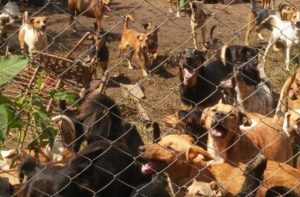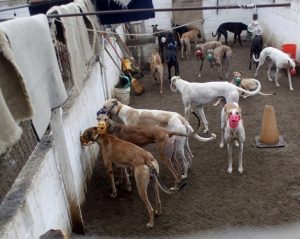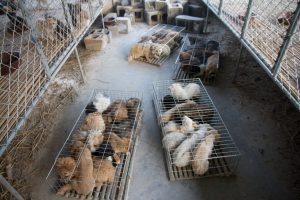In response to the growth of illegal pet breeding facilities and their unregulated commercialization, the Municipal Council of Rosario is debating a profound reform of ordinance 7,445, which regulates the ownership and circulation of domestic animals.
The initiative, currently under discussion in committees, includes three key modifications: the prohibition of breeding facilities for commercial purposes, the mandatory use of identification tags for pets, and the formal designation of the Control Secretariat as the enforcing authority.
The proposal addresses a growing issue: the rescue of purebred animals in conditions of neglect, reports of neighbors about undernourished and mistreated dogs, and the massive sale of puppies on social media and websites, without any control or regulation.
“It is contradictory that the municipality promotes sterilization campaigns while not acting against the clandestine business of breeding and selling pets,” states the project’s text, accessed by Rosario3.

Five years to close licensed breeders
The most significant change is the total ban on dog and cat breeding facilities within the urban area. The project, led by councilwoman Norma López, establishes a five-year period for currently licensed breeders to close their doors or relocate outside the city. During that time, they must submit a sworn declaration of the animals under their care, all identified with microchips or tattoos, and they will not be able to expand their activities.
The initiative was originally presented in 2022 but had expired. Now, faced with the increase in clandestine breeders, it has been resumed and has the support of animal protection groups, veterinarians, and animal defense organizations.
Mandatory identification and changes in enforcement
Another modification proposed by the ordinance is that all pets must circulate with an identification tag, including the owner’s name and contact phone number. While its effective implementation is still under debate, it aims to establish symbolic fines to promote responsibility in pet ownership.
Furthermore, a change that is already in practice is formalized: the Secretariat of Control and Coexistence will become the enforcing authority of the regulations. This way, the functions of control and inspection are separated from those related to animal health, such as sterilizations and adoptions, which will remain under the jurisdiction of Imusa.

Coordination with other areas and the role of Justice
Municipal officials like Maximiliano Levrand (Coordinator of Transversal Animal Health Policies) and José Ignacio Mangiameli (Director of Intersectoral Policies) confirmed that they are working in coordination with Civil Protection, Ecological Police, and the Prosecutor’s Office to improve the response to reports of abuse and abandonment, as well as the responsible adoption of rescued animals.
Mangiameli emphasized that there are often legal obstacles to the adoption of animals, as procedures are not always clear and there is a lack of definitions regarding their legal status.
Sale with veterinary control and confiscation in case of irregularities
If the reform is approved, the sale of dogs and cats can only take place if the animals have electronic identification, health records, and certificates issued by licensed veterinarians. Additionally, it is established that any unauthorized commercialization will be penalized with immediate closure, confiscation of animals, and penalties at clandestine pet breeders, according to the Code of Offenses.
The project reinforces the idea that animal welfare must prevail over profit, and that abandonment and overpopulation are not isolated consequences, but part of a system that requires regulation and political commitment.

Rosario: they create an app that facilitates reuniting with lost pets
Rosario now has an innovative tool to help find lost dogs and cats: RescatApp, a free application designed to connect owners with their lost pets quickly, organized, and accessible.
This project aims to optimize community assistance, providing a structured and geolocated platform for the publication of missing and found animals, due to the need for a centralized tool.
On social media platforms like Facebook and Instagram, the dissemination of lost pets is usually disorganized. Creating an efficient and updated solution that allows users to find and report pets easily is always necessary.
Source: Rosario3.

